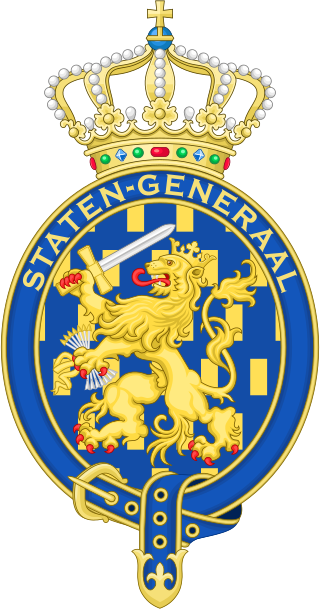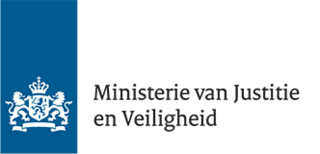
Jus soli, meaning 'right of the soil', is the right of anyone born in the territory of a state to nationality or citizenship, also commonly referred to as birthright citizenship in some Anglophone countries, is a rule defining a person's nationality based on their birth in the territory of the country. Jus soli was part of the English common law, in contrast to jus sanguinis, which derives from the Roman law that influenced the civil-law systems of mainland Europe.

South African nationality law details the conditions by which a person is a national of South Africa. The primary law governing nationality requirements is the South African Citizenship Act, 1995, which came into force on 6 October 1995.

Denization is an obsolete or defunct process in England and Ireland and the later Kingdom of Great Britain, the United Kingdom, and the British Empire, dating back to the 13th century, by which an alien (foreigner), through letters patent, became a denizen, thereby obtaining certain rights otherwise normally enjoyed only by the King's subjects, including the right to hold land. The denizen was neither a subject nor an alien, but had a status akin to permanent residency today. While one could become a subject via naturalisation, this required a private act of Parliament ; in contrast, denization was cheaper, quicker, and simpler. Denization fell into obsolescence when the British Nationality and Status of Aliens Act 1914 simplified the naturalisation process.
Immigration law includes the national statutes, regulations, and legal precedents governing immigration into and deportation from a country. Strictly speaking, it is distinct from other matters such as naturalization and citizenship, although they are sometimes conflated. Countries frequently maintain laws that regulate both the rights of entry and exit as well as internal rights, such as the duration of stay, freedom of movement, and the right to participate in commerce or government.

Dutch nationality law details the conditions by which a person holds Dutch nationality. The primary law governing these requirements is the Dutch Nationality Act, which came into force on 1 January 1985. Regulations apply to the entire Kingdom of the Netherlands, which includes the country of the Netherlands itself, Aruba, Curaçao, and Sint Maarten.

The Ministry of Justice and Security is the Dutch ministry responsible for justice, imprisonment and public security. The ministry was created in 1798 as the Department of Justice, before it became in 1876 the Ministry of Justice. In 2010, it took over the public safety duties from the Ministry of the Interior and Kingdom Relations and became Ministry of Security and Justice. In 2017 the ministry was renamed to Ministry of Justice and Security. The ministry is headed by the Minister of Justice and Security, Dilan Yeṣilgöz-Zegerius (VVD) since 10 January 2022.
The Law on integration obliges most immigrants who are not citizens of the EU, Switzerland, Turkey, or the European Economic Area countries to learn Dutch and pass an exam within a few years of their arrival in the Netherlands. Since first appearing in draft form as part of a proposal in the House of Representatives, the exam has proven to be highly controversial. It continues to be both a subject of controversy, and even ridicule, in the Netherlands.

The Citizens' Rights Directive 2004/38/EC sets out the conditions for the exercise of the right of free movement for citizens of the European Economic Area (EEA), which includes the member states of the European Union (EU) and the three European Free Trade Association (EFTA) members Iceland, Norway and Liechtenstein. Switzerland, which is a member of EFTA but not of the EEA, is not bound by the Directive but rather has a separate multilateral sectoral agreement on free movement with the EU and its member states.
According to research done by the Organisation for Economic Co-operation and Development (OECD), the Netherlands is ranked with Switzerland in having the most broadband subscriptions per 100 inhabitants, has no bandwidth caps, and has the most homes passed in Europe in terms of connection speeds of 50 Mbit/s and higher.

Sietse Rindert Fritsma is a Dutch politician and former civil servant. As a member of the Party for Freedom he has been a member of the House of Representatives since 1 September 2020. He previously served in the House between 30 November 2006 and 31 October 2019. He focuses on matters of social affairs, employment, political asylum and immigration. From March 2010 till January 2011 he was also a member and PVV fraction leader of the municipal council of The Hague.

The visa policy of Ireland is set by the Government of Ireland and determines visa requirements for foreign citizens. If someone other than a European Union, European Economic Area, Common Travel Area or Swiss citizen seeks entry to Ireland, they must be a national of a visa-exempt country or have a valid Irish visa issued by one of the Irish diplomatic missions around the world.

Malik Azmani is a Dutch politician and former lawyer and civil servant. A member of the People's Party for Freedom and Democracy (VVD), which he led in the 2019 European Parliament election, he has served as a Member of the European Parliament (MEP) since then. Azmani was first elected to the House of Representatives in 2010.

Namibian nationality law is regulated by the Constitution of Namibia, as amended; the Namibian Citizenship Act, and its revisions; and various international agreements to which the country is a signatory. These laws determine who is, or is eligible to be, a national of Namibia. The legal means to acquire nationality, formal legal membership in a nation, differ from the domestic relationship of rights and obligations between a national and the nation, known as citizenship. Nationality describes the relationship of an individual to the state under international law, whereas citizenship is the domestic relationship of an individual within the nation.
Citizenship education for new citizens is education intended to prepare noncitizens to become legally and socially accepted as citizens, and is carried out by a variety of governmental and non-governmental organizations (NGO).
Honorary citizen is an honour bestowed by South Korea's Minister of Justice on foreigners of exceptional merit. It is a symbolic honour; the recipient does not take the Oath of Citizenship and thus does not receive any rights, privileges, or duties typically held by a citizen of South Korea.
A long-term resident in the European Union is a person who is not a citizen of an EU country but has resided legally and continuously within its territory for five years with a means of support and fulfills some further requirements, as defined in Directive 2003/109/EC. The status permits the holder some of the rights of free movement afforded to EU/EEA citizens in the participating countries; of the EU countries Denmark and Ireland do not participate in implementing the Directive. The implementation of the directive is left to the participating countries, with some national variations in the requirements for and benefits of long-term resident status.
This article lists major events that happened in 2018 in the Netherlands.

Hendrikus Wilhelmus Maria "Dick" Schoof is a Dutch civil servant. Since March 2020, he has been secretary-general at the Ministry of Justice and Security. As of May 2024, Schoof is being considered for Prime Minister of the Netherlands by the coalition parties PVV, VVD, NSC, and BBB.
Guyanese nationality law is regulated by the 1980 Constitution of Guyana, as amended; the Citizenship Act of 1967, and its revisions; and various British Nationality laws. These laws determine who is, or is eligible to be, a national of Guyana. Guyanese nationality is typically obtained either on the principle of jus soli, i.e. by birth in Guyana; or under the rules of jus sanguinis, i.e. by birth abroad to parents with Guyanese nationality. It can also be granted to persons with an affiliation to the country, or to a permanent resident who has lived in the country for a given period of time through naturalisation. There is not currently a program in Guyana for persons to acquire nationality through investment in the country. Nationality establishes one's international identity as a member of a sovereign nation. Though it is not synonymous with citizenship, for rights granted under domestic law for domestic purposes, the United Kingdom, and thus the Commonwealth, have traditionally used the words interchangeably.











